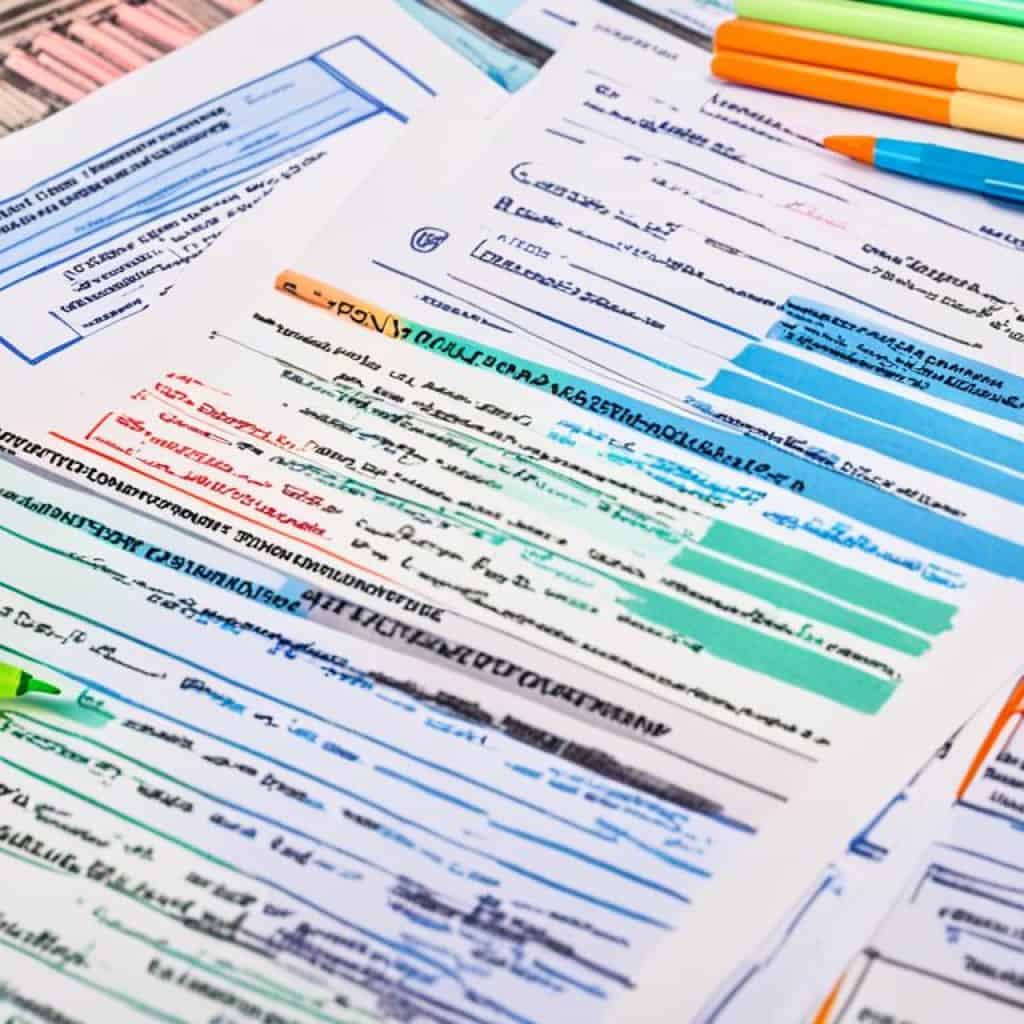Are you a K-1 visa holder planning to bring your child to the United States? Discover the essential steps and requirements for obtaining a K-2 visa, ensuring a smooth immigration process for your child’s journey.
- Understand the eligibility criteria for a K-2 visa, including the age and marital status requirements.
- Learn about the timeline for the K-2 visa process and the key milestones along the way.
- Familiarize yourself with the required documents for a successful K-2 visa application.
- Discover the cost involved in obtaining a K-2 visa, including filing fees and other incidental expenses.
- Explore the privileges and restrictions that come with a K-2 visa, including the ability to live, study, and work in the US.
What is a K-2 Visa?
A K-2 visa is a non-immigrant visa that grants entry to the United States for unmarried children under the age of 21 who are accompanying or following to join their parent who holds a K-1 visa. It is a derivative visa, meaning it is directly associated with the K-1 visa held by the parent.
For a child to be eligible for a K-2 visa, they must be included in the parent’s K-1 visa petition and meet the necessary requirements. The main requirement is that the child must be unmarried and under the age of 21 at the time of entering the United States.
Once granted, the K-2 visa provides the child with the opportunity to reside in the United States with their parent and enjoy certain privileges, such as enrolling in schools and pursuing education. They may also be eligible to apply for a work permit and, eventually, petition for permanent resident status through adjustment of status if their parent’s marriage to the K-1 visa sponsor occurs.
The application process for a K-2 visa involves submitting specific documents, attending an interview at the U.S. embassy or consulate, and paying the required fees. It is important to understand and meet all the criteria and guidelines to ensure a smooth and successful visa application process for the child.
Now that we have a basic understanding of what a K-2 visa is, let’s delve into the timeline for the K-2 visa process in the next section.
Timeline for K-2 Visa Process
The K-2 visa process involves multiple phases that contribute to the overall timeline. It is crucial to understand the different steps and their respective durations to effectively plan for your child’s US immigration journey. Here is a breakdown of the average timeline for the K-2 visa process:
- Filing the Form I-129F: About 1-2 weeks
- USCIS Processing: Approximately 4-6 months
- NVC and Embassy Processing: Around 2-3 months
- Visa Interview: Scheduled within a few weeks to a month from embassy processing completion
Please note that these timeframes are approximate and can vary depending on various factors, including the specific circumstances of your case and the workload of the USCIS and embassy. It is essential to stay updated with the USCIS and embassy notifications throughout the K-2 visa process.
Once the Form I-129F is filed, it generally takes 1-2 weeks for the USCIS to process the petition. After USCIS processing, the National Visa Center (NVC) and the embassy initiate further processing, which takes approximately 2-3 months. The embassy will provide instructions for the visa interview, typically scheduled within a few weeks to a month from the completion of NVC and embassy processing.
Additional Considerations:
It is important to keep track of the timelines for each phase of the K-1 process, as the K-2 visa is dependent on the K-1 visa. Delays in any stage can potentially impact the overall timeline. Stay in touch with the USCIS and embassy, as they may provide updates on processing times and any additional requirements specific to your situation. Plan ahead and gather all necessary documents well in advance to ensure a smooth and timely K-2 visa process.
For a visual representation of the timeline for the K-2 visa process, refer to the table below:
| Phase | Duration |
|---|---|
| Filing the Form I-129F | 1-2 weeks |
| USCIS Processing | Approximately 4-6 months |
| NVC and Embassy Processing | Around 2-3 months |
| Visa Interview | Scheduled within a few weeks to a month from embassy processing completion |
As mentioned earlier, these durations are averages and can vary. It is crucial to stay updated with the latest information provided by the USCIS and embassy to have an accurate understanding of the timeline for your specific K-2 visa case.
Please note: The timeline provided is a general estimate and can vary depending on individual circumstances. It’s recommended to consult with an immigration attorney or expert for personalized guidance and to navigate the K-2 visa process effectively.

Cost of K-2 Visa
The cost of obtaining a K-2 visa involves several fees that applicants need to consider. Here’s a breakdown of the fees associated with the K-2 visa application:
| Fee | Amount |
|---|---|
| Filing fee for Form I-129F | $535 |
| Medical exam fee | Varies (Average: $200) |
| Visa application fee | $265 |
It’s important to note that the aforementioned fees do not cover additional expenses such as translation fees, travel expenses, and photocopying charges. These incidental costs may vary depending on individual circumstances.
Considering the various fees and incidental expenses, the total cost for obtaining a K-2 visa can amount to around $1,940.
Eligibility for K-2 Visa
When it comes to obtaining a K-2 visa, there are specific requirements that must be met. To ensure eligibility for a K-2 visa, it is important to understand the criteria that must be fulfilled.
- Age Restriction: The child applying for a K-2 visa must be under 21 years old.
- Marital Status: The child must be unmarried at the time of applying for the visa.
- Inclusion in K-1 Petition: The child must be listed as a beneficiary in the K-1 visa petition filed by the US citizen sponsor. This means that the child’s parent (the US citizen) must have applied for a K-1 visa to bring their fiancé(e) to the United States.
- Eligibility of US Citizen and Fiancé(e): Both the US citizen sponsor and the foreign fiancé(e) must meet the eligibility requirements for the K-1 visa. These requirements include being legally permitted to marry and having met in person within the last 2 years prior to filing the petition.
By satisfying these requirements, the child can be considered eligible for a K-2 visa, thus opening up the opportunity to join their parent in the United States.
“To ensure eligibility for a K-2 visa, it is important to understand the criteria that must be fulfilled.”

| Eligibility Criteria for K-2 Visa | Requirements |
|---|---|
| Age | Under 21 |
| Marital Status | Unmarried |
| Inclusion in K-1 Petition | As a beneficiary |
| Eligibility of US Citizen and Fiancé(e) | Legally permitted to marry and have met in person within the last 2 years |
Required Documents for K-2 Visa
When applying for a K-2 visa, it is crucial to gather and prepare all the necessary documents to support your application. The required documents for a K-2 visa include:
- Confirmation page for completed Form DS-160
- Medical exam results
- Two passport-sized photos
- Police certificates
- Passport valid for at least 6 months
- Birth certificate
- Divorce or death certificates for previous spouses
- Evidence of financial support
- Proof of authentic relationship between fiancé(e)s
- Money for fees
These documents must be brought to the interview to support your eligibility for the K-2 visa. They serve as tangible evidence of your identity, relationship, and financial capacity to ensure a smooth visa application process. Make sure to have all the required documents properly organized and readily available for submission.
Below is an image that visually represents the different documents required for a K-2 visa:
Required Documents for K-2 Visa
| Document | Description |
|---|---|
| Confirmation page for completed Form DS-160 | Proof of completing Form DS-160, the online non-immigrant visa application form |
| Medical exam results | Evidence of having undergone a medical examination by an approved physician |
| Two passport-sized photos | Recent, color photographs meeting the specific requirements for visa applications |
| Police certificates | Clearance certificates from the applicant’s country of residence to verify good conduct |
| Passport valid for at least 6 months | Valid passport with a remaining validity of at least 6 months |
| Birth certificate | Official document confirming the applicant’s date and place of birth |
| Divorce or death certificates for previous spouses | Legal documents confirming the dissolution of any previous marriages |
| Evidence of financial support | Documentation proving the ability to financially support the K-2 visa applicant |
| Proof of authentic relationship between fiancé(e)s | Evidence demonstrating the genuine and bona fide relationship between the petitioner and the applicant |
| Money for fees | Sufficient funds to cover the visa application and processing fees |
Ensuring that you have all the necessary documents will help streamline the K-2 visa application process and increase your chances of a successful outcome. It is important to review the specific requirements and guidelines provided by the embassy or consulate where you will be applying to ensure compliance and smooth processing of your application.
How to Apply for K-2 Visa
Applying for a K-2 visa is a straightforward process, but it requires careful attention to detail and timely submission of documents. Here is a step-by-step guide on how to apply for a K-2 visa:
- Step 1: File the K-1 Visa Petition: The US citizen sponsor must include the child in the K-1 visa petition filed with the United States Citizenship and Immigration Services (USCIS). Ensure all required information and supporting documents are included.
- Step 2: Await Petition Approval: Once the K-1 visa petition is approved, the embassy or consulate will notify the US citizen sponsor about the upcoming interview. This notification will include instructions for scheduling the interview date.
- Step 3: Prepare Required Documents: Gather all the necessary documents for the child’s K-2 visa application. These documents may include the child’s passport, birth certificate, medical examination results, police clearance certificates, and the confirmation page of the completed Form DS-160.
- Step 4: Attend the Interview: Accompany the child to the scheduled interview appointment at the designated US embassy or consulate. Ensure that all required documents are brought to the interview and answer all interview questions honestly and accurately.
- Step 5: Await Visa Approval: If the interview is successful and all documents are in order, the child’s K-2 visa will be approved. The visa will be affixed to the child’s passport, allowing them to travel to the United States.
“Applying for a K-2 visa requires careful attention to detail and timely submission of documents.”
It is crucial to follow the application process accurately and provide all required documents to ensure a smooth K-2 visa application. Remember, each step is essential, from filing the K-1 visa petition to attending the interview. By following these steps, you can provide your child with the opportunity to join you in the United States on a K-2 visa.
| Required Documents for K-2 Visa Application: |
|---|
| Passport |
| Birth certificate |
| Medical examination results |
| Police clearance certificates |
| Confirmation page of completed Form DS-160 |

K-2 Visa Interview
The K-2 visa interview is a crucial step in the process of obtaining a K-2 visa for the unmarried children of a K-1 visa holder. This interview plays a significant role in determining whether the child is eligible to enter the United States and join their parent.
Once the National Visa Center receives the approved K-1 petition, the embassy or consulate will send instructions to the applicant on scheduling the interview. It is important to carefully follow these instructions and promptly complete the necessary steps to secure an interview slot.
During the interview, the applicant will be required to present all the required documents to the consular officer. These documents should be prepared in advance and include:
- Confirmation page for completed Form DS-160
- Medical examination results
- Two passport-sized photos
- Police certificates
- Passport valid for at least 6 months
- Birth certificate
- Divorce or death certificates for previous spouses, if applicable
- Evidence of financial support
- Proof of authentic relationship between fiancé(e)s
- Money for fees
It is crucial to arrive at the interview with all the required documents, as failure to present any of them may result in delays or denial of the visa.
Applicants must also register on the Applicant Service Center website, pay the required fees, and schedule a visit to the center for photo and fingerprint collection. These steps should be completed before the interview date.
“The K-2 visa interview is an opportunity for the applicant and the consular officer to interact directly and assess the eligibility of the child for the visa. It is important to be prepared, confident, and truthful during the interview.”
Privileges of K-2 Visa Holders
K-2 visa holders enjoy several privileges that allow them to fully embrace their new life in the United States. These privileges contribute to creating a smooth transition and a sense of stability for the children of K-1 visa holders.
Living with Parents
One of the significant privileges of a K-2 visa is the ability to live with their parents in the United States. This allows the child to remain close to their family, providing emotional support and a familiar environment during the immigration process.
Education Opportunities
K-2 visa holders have the freedom to enroll in schools and pursue education in the United States. This allows children to continue their academic journey, gain knowledge, and develop new skills, ensuring a bright future for their personal and professional growth.
Possibility of Work Permit
K-2 visa holders have the possibility of obtaining a work permit, which enables them to gain employment in the United States. By submitting the Employment Authorization (EAD) form, K-2 visa holders can explore job opportunities and contribute to their own financial well-being.
Path to Permanent Resident Status
Another significant privilege of a K-2 visa is the potential to petition for permanent resident status. Once their parents’ marriage is solemnized, K-2 visa holders can begin the process of adjusting their status and taking steps towards becoming permanent residents of the United States.
With these privileges, K-2 visa holders can fully embrace their new life in the United States, build their future, and thrive in their personal and professional endeavors.
| Privileges of K-2 Visa Holders |
|---|
| Ability to live with parents in the US |
| Access to education opportunities |
| Possibility of obtaining a work permit |
| Path to petition for permanent resident status |
Restrictions on K-2 Visa Holders
K-2 visa holders are subject to certain restrictions that they must abide by during their stay in the United States. Understanding these restrictions is crucial for a smooth and compliant immigration process.
1. Non-Immigrant Visa Status Change
K-2 visa holders are not permitted to change to another non-immigrant visa status while on a K-2 visa. This means that they must fulfill the requirements of the K-2 visa and cannot switch to a different visa category during their stay.
2. Timely Parental Marriage
If the parental marriage does not occur within 90 days of the child’s admission to the United States on a K-2 visa, the child must depart within 30 days. It is essential for the parental marriage to take place within the allotted timeframe to ensure compliance with visa regulations.
3. Previous Immigration Violations
K-2 visa holders are also restricted from entering or staying in the United States if they have any previous immigration violations. This includes previous overstays, unauthorized employment, or any other immigration-related actions that violate the terms of their visa.
It is important for K-2 visa holders to be aware of these restrictions and to adhere to them throughout their time in the United States. Failure to comply with these restrictions can have serious consequences, including future immigration difficulties.
| Restriction | Description |
|---|---|
| Non-Immigrant Visa Status Change | K-2 visa holders cannot change to another non-immigrant visa category during their stay in the United States. |
| Timely Parental Marriage | If the parental marriage does not occur within 90 days of the child’s admission on a K-2 visa, the child must depart within 30 days. |
| Previous Immigration Violations | K-2 visa holders with previous immigration violations are restricted from entering or staying in the United States. |
K-2 Visa Validity and Extension
A K-2 visa is valid for 90 days from the date of entry into the United States. It is important to note that this 90-day period starts once the child arrives in the country. During this time, the parental marriage that forms the basis of the K-1 visa must occur. If the marriage does not take place within the 90-day validity period, the child must depart within 30 days.
âThe K-2 visa provides a limited window of time for the parental marriage to occur. It is crucial to plan and coordinate accordingly to ensure that the marriage takes place within the given timeframe,â advises immigration attorney Jennifer Lopez. âIf the marriage is delayed beyond the 90-day period, it can have serious implications for the child’s immigration status. Therefore, it is imperative to keep track of the timeline and take necessary steps to avoid any issues.â
It is important to note that the K-2 visa is non-extendable. This means that once the 90-day validity period expires, the child cannot apply for an extension or change to another non-immigrant visa status. It is crucial to take timely action and file the necessary petitions for adjustment of status within the allowed time frame.
âIt is essential to consult with an experienced immigration attorney who can guide you through the process and ensure that all necessary paperwork is filed within the required timelines,â emphasizes Jennifer Lopez. âBy being proactive and prepared, you can avoid any complications and ensure that your child’s immigration journey remains on track.â
Planning and careful consideration of the K-2 visa validity and extension is crucial. By understanding the limitations and timelines associated with the K-2 visa, parents can make informed decisions and take the necessary steps to ensure the smooth progression of their child’s immigration process.
Conclusion
The K-2 visa provides a valuable opportunity for unmarried children of K-1 visa holders to join their parents in the United States. Understanding the requirements, process, and timeline for obtaining a K-2 visa is crucial for families embarking on this immigration journey.
By following the necessary steps and supplying the required documents, families can successfully navigate the K-2 visa process. It is important to submit the K2 visa application, attend the K2 visa interview, and pay the necessary K2 visa fees. Adhering to the K-2 visa timeline and being prepared for each stage of the process will help ensure a smooth and successful application.
With the K-2 visa, children can live with their parents in the US, enroll in schools, and even obtain a work permit through the Employment Authorization (EAD) form. It is important to note that K-2 visa holders have restrictions, such as their inability to change to another non-immigrant visa status. Additionally, if the parental marriage does not occur within 90 days, the child must depart within 30 days.
Therefore, for families seeking to reunite with their K-1 visa holder in the US, the K-2 visa offers a valuable opportunity. By understanding the requirements, process, and timeline, families can successfully navigate the K-2 visa application and embark on their immigration journey together.
FAQ
What is a K-2 Visa?
A K-2 visa is a non-immigrant visa that allows the unmarried children under 21 of a K-1 visa holder to enter the United States.
What is the timeline for the K-2 visa process?
The timeline for the K-2 visa process can vary, but on average, it takes about 7 months from filing the Form I-129F to the interview date.
How much does a K-2 visa cost?
The cost of a K-2 visa includes various fees, such as the $535 filing fee for Form I-129F, the medical exam fee (average of $200), and the $265 visa application fee.
Who is eligible for a K-2 visa?
To be eligible for a K-2 visa, the child must be under 21 and unmarried and must be included in the K-1 visa petition filed by the US citizen sponsor.
What documents are required for a K-2 visa?
The required documents for a K-2 visa include the confirmation page for completed Form DS-160, medical exam results, photos, police certificates, passport, birth certificate, divorce or death certificates for previous spouses, evidence of financial support, proof of authentic relationship between fiancé(e)s, and money for fees.
How do I apply for a K-2 visa?
To apply for a K-2 visa, the child must be included in the K-1 visa petition filed by the US citizen sponsor. Once the K-1 petition is approved, the embassy or consulate will send information about the upcoming interview to the US citizen sponsor.
What happens during the K-2 visa interview?
The K-2 visa interview is a crucial step in the process. The embassy or consulate will send instructions on scheduling the interview after receiving the approved K-1 petition. The applicant must register on the Applicant Service Center website, pay the required fees, and schedule a visit to collect biometric data. The interview will be conducted at the US embassy or consulate, and all required documents must be presented.
What are the privileges of K-2 visa holders?
K-2 visa holders are allowed to live with their parents in the US, enroll in schools, pursue education, and have the possibility of obtaining a work permit. They can also petition for permanent resident status after the marriage of their parents.
Are there any restrictions on K-2 visa holders?
K-2 visa holders are not allowed to change to another non-immigrant visa status while on a K-2 visa. If the parental marriage does not occur within 90 days of the child’s admission to the US, they must depart within 30 days. K-2 visa holders are also restricted from entering the US if there are any previous immigration violations.
How long is a K-2 visa valid?
A K-2 visa is valid for 90 days from entry into the US. If the parental marriage does not occur within this time, the child must depart within 30 days. The K-2 visa is non-extendable, and the child cannot change to another non-immigrant visa status.








Add comment